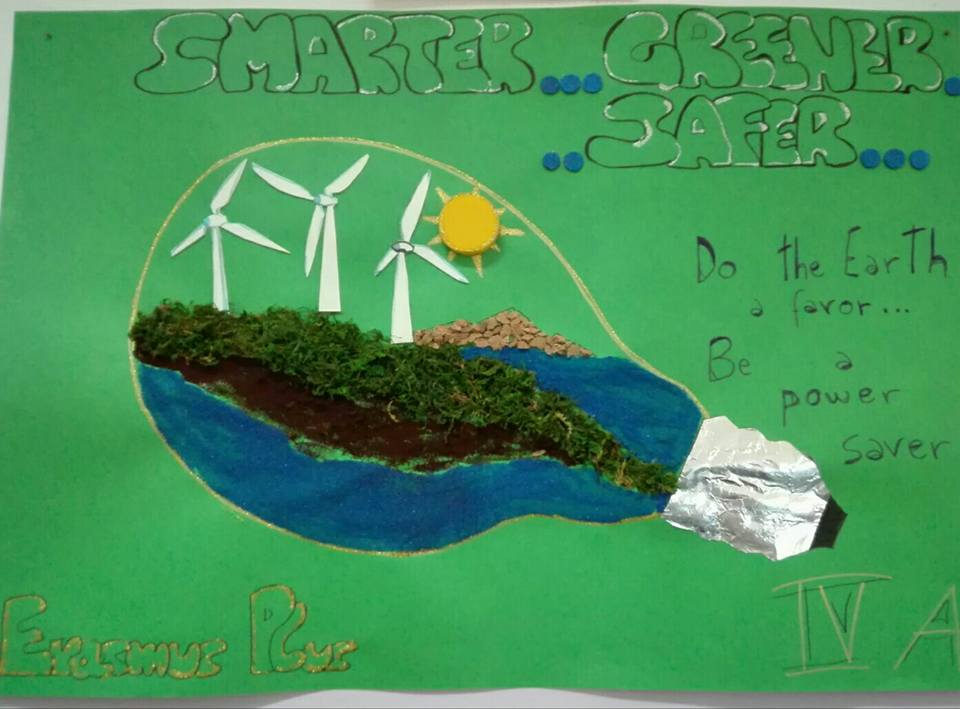
The project ‘Smarter…Greener…Safer…’ is to increase practical scientific and entrepreneurial skills of students and equip teachers with innovative and effective teaching methods to support scientific and entrepreneurial education. The project concerns environmental issues as disrespect for natural environment, excessive use of raw materials, energy and overconsumption are problems of our times. Scientific and entrepreneurial knowledge of students is too theoretical and teachers lack innovative and effective teaching methods. Students are poor at managing time, home budgets, recycling and energy usage while teachers lack competence in teaching scientific subjects combined with entrepreneurial skills. The project objective is to foster innovative, out-of-box thinking, appealing to young minds who are more and more demanding and not interested in traditional methods used at school and to equip teachers with innovative teaching tools. The project is innovative because it will introduce and test out innovative methods of teaching scientific subjects and entrepreneurial skills (innovative multidisciplinary approach aiming at interconnection between scientific knowledge and entrepreneurial skills to prevent/solve environmental problems). It will make use of the newest technological innovations and tools to solve environmental problems using entrepreneurial skills (e.g. QR, microbit). It will emphasise Problem-Based Learning (PBL) and collaborative problem solving as effective tools for creative thinking. The target groups are young teenagers (12-14), for whom entrepreneurial education intermingled with scientific courses is something new and unavailable within the regular school curricula, and Science, English and IT teachers who will learn how to put this idea into practice (at least 150 students and 30 teachers). Project partners will closely cooperate with local companies and specialists to make the interconnection between environmental and entrepreneurial education most effective. In technology-oriented world, engaging students in designing simple devices, using videos involving peer teaching and use of technological innovations will stimulate their minds to perceive environmental issues more practically and attractively. Project activities will be a grassroot initiative triggering off new approach and changes in scientific curriculum to make it more practical and efficient. The activities will take place at local, regional and international levels. Workshops for teachers on how to teach multidisciplinary entrepreneurial skills (including online ones), workshops for students using activating methods of teaching/learning and studies conducted during mobilities will foster innovative approach to promoting green energy and business ideas in countries with different economic and cultural background, and with diverse eco-systems. Cooperation with local institutions, educational centres and companies will enhance the participants’ practical scientific and entrepreneurial skills and become the basis for future cooperation in the field of environment protection in diverse eco-systems. Transnational project meetings and short-term exchanges will make it easier for the target groups to exchange ideas and practical experience, especially that some partners to the project can offer facilities and equipment unavailable to others (e.g. cooperation with EduFor Training Centre, Portugal; status of Apple partner in education, Croatia). Partners to the project face diverse ecological problems, their experience in environmental protection differs a lot, thus international exchange of good practices is the key to success. Tangible results of the project (e.g. Greenpreneur’s Book, Green E+Dictionary, innovative lesson plans) will be disseminated at local, regional and European levels to make sure our ideas are available for everyone. A multimedia teaching aid base will be available to all partners and anyone interested in practical scientific and entrepreneurial education. Erasmus+ Project Results Platform will help show the outcomes of the project, sharing good practice and experience within schools, communities and regions, allowing others to learn from it. The project will bring longer term benefits. Activities promoting practical scientific and entrepreneurial skills will be part of school curricula and cooperation with local institutions will be continued. Project online groups will still be active making background for further discussions and future cooperation. Students will become familiar with culture and natural heritage of other countries and break down barriers and prejudices between nations. They will improve linguistic skills, which will facilitate creating new EU program projects in the field of education through exchange of good practices. Above all, the project participants will learn that despite cultural diversities we all have the same goal as responsible European citizens – to be smarter …greener…safer…
